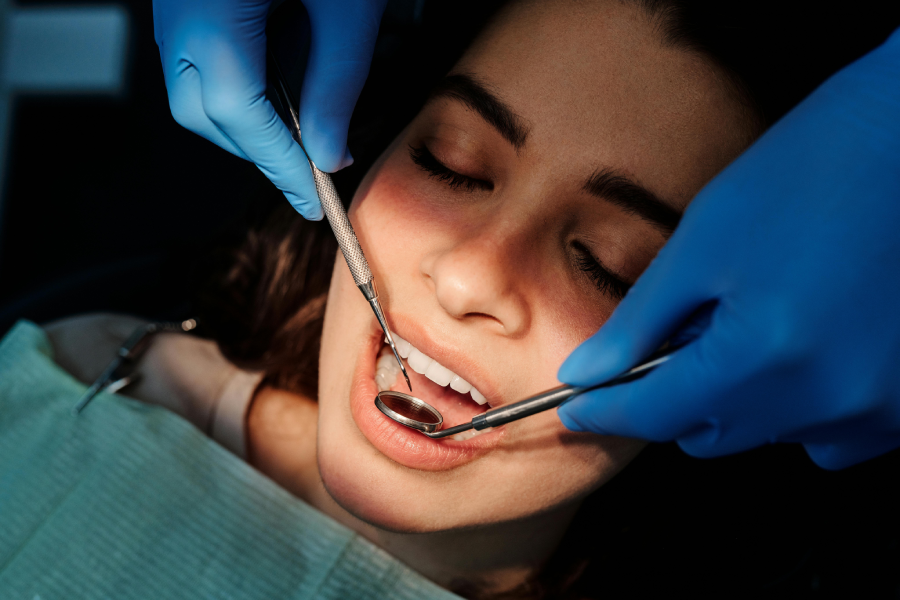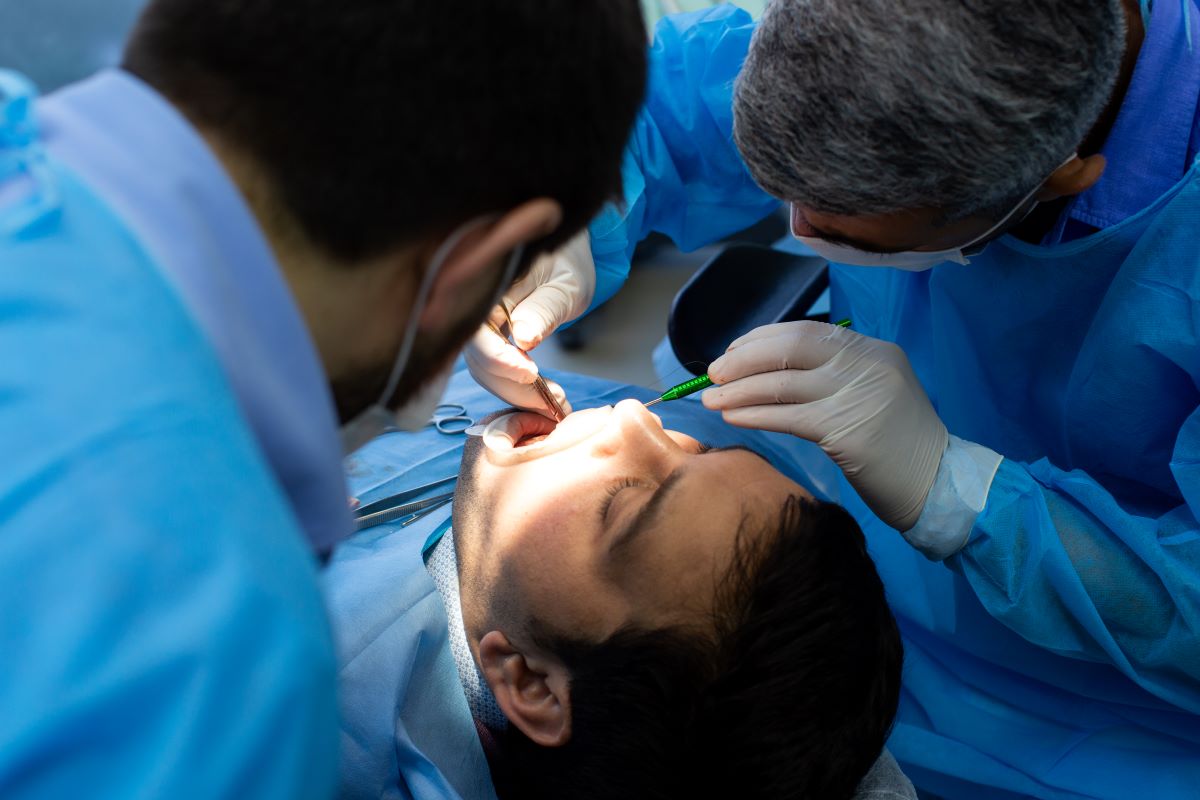In the past, removable full mouth or partial dentures have been the standard option for replacement of missing natural teeth. However, in the dawn of new technology, dental implants are becoming the preferred choice for patients, as removable prosthetics become a less popular choice.
This shift has brought a significant number of benefits which we will discuss with you below. This information will help you make better choices whether removable prosthetics or implants are a good option for you. Get more information on dental implants here.
Dental Implants
What are Dental Implants?
They consist of a tapered metallic post with threads around its circumference. These metallic posts are then firmly screwed into the jaw bone and act as artificial tooth roots. On these artificial roots, through the help of the previously chosen abutments, high-quality crowns are made. These metallic inserts become an almost natural root, through the Osseo-integration process.
Osseo-integration is when the bone cells begin to grow into the metal surface that gets in contact with it. The adaptation of these cells to the metal surface takes time to complete, usually between 3 to 6 months. At this time, the metallic implant will be as if a natural part of the jaw. In some cases, they can even be prepared and inserted within the same day.
Dentures
What are Dentures?
They are an artificial set of teeth attached into a gum colored acrylic base. This acrylic base sits over the natural gums, and the suction between the base and the gum keeps the denture in place.
They can be partial or full. Compared to dental implants, they are less expensive. Also, it can be made readily after taking the measurements of your teeth and gums. To ensure the fit and your oral health, the dentist will check your gums for any gum recession or gum disease. In general, it will take at least two visits to get them. It was observed however that there are a lot of limitations about this method.
Limitations
Although they may sound like an ideal solution for your missing teeth, they also have their own limitations no matter how well made they may be.
- Not Fit for Everybody – Your jaw has to have sufficient bone mass and density to bear the pressure of chewing that is applied to the supported teeth. Mass and density is important to remember since they are rooted directly into the jaw. Because of this, they are usually not advisable for people who are suffering from certain chronic diseases. Also, adolescents are not advised to receive them until they attain a certain age as their jaws are still undergoing growth. In addition to this, they are also not advised for diabetic patients because of their porous bones. Read more on Dental Implants for Seniors
- Bone and Gum Grafting – There are instances when patients do not have enough jawbone to support the artificial roots. Others do not have enough gum flesh to cover the implant structure. If these cases arise, bone and gum flesh can be grafted as needed.
- Cost – This is one of the major factor that most patients consider when deciding between them or traditional dentures. They are far more expensive than the latter. Also, the bill can run higher, if other preparatory operations are needed such as tooth extraction, bone and gum grafting, and others.
- Length of Treatment – The implant procedure takes many visits to a dentist and could take over six months to complete. This length of time is to give your gums the time to heal if tooth extraction was made and to allow osseo-integration to begin. The process of osseo-integration itself could take about a 3 to 6 months to recover and fully settle. However, modern practices make it possible to have the procedure done in a single visit. This process is called same-day, or immediate, implants. In this case, you have to observe caution and avoid hard to chew foods until the process of osseo-integration is fully completed.
- Implant specialists – It takes a well trained and experienced dentist to successfully complete a placement. Be aware that not every DDS will have the proper training or facility to perform this procedure.
Limitations
- Must be Removed – They must be frequently removed for cleaning and when sleeping. This frequent removal and placement may tend to weaken the denture and could make it loose or in worst cases, damage it.
- Storage – When not in use, they must be placed in a fluid to prevent them from shrinking or warping.
- Brittle – They must be handled with care. Because their materials are brittle, they could break or crack and become unusable after a fall.
- Slip-off embarrassment – Remember that they are merely stuck to the gum through suction. Thus, they can slip off or displaced.
- Bone Loss – They sit on the base of the tooth gap, over the gum. Bones in these empty sockets tend to deteriorate and shrink, which is called bone resorption.
- Need for Relining – Bone loss and acrylic shrinkage can make them not fit over time. They require frequent relining or, in some cases, replacement.
- Limited Shelf Life – The expected shelf life for permanent dentures is between 7-10 years. After this span of time, they most likely must be replaced.
- Pain – If a set are not well made or there was an error made while preparing the molds, they could hurt your gum.
Continue reading on Adjusting to Permanent Dentures
Teeth Replacement
With this treatment option, you have the option to choose whether to get a single molar replaced or a complete set of teeth. Even as few as four artificial roots can already make a huge difference in the place of your missing natural teeth. This arrangement is called the all-on-four-bridge.
But before you think about getting this, it is important to take note that you have to be in a healthy condition with a good bone structure and density. This is important for the for your overall health as well as in holding the implant in place even against stresses and pressure.
Although there are also available options to aid this deficiency such as grafting. The same is true when it comes to your gums which cover the artificial roots for aesthetic reasons.
It is still advisable to consult your physician before undergoing this treatment.
Learn: Questions to Ask Before Getting All-on-4 Dental Implants
Final Word
Upon laying down all the information that you need to know about dental implants and dentures, it’s not surprising why more and more people prefer implants.. Even though it is costly its aesthetics and functional advantages are far better than traditional removable prostheses. So, if you have any questions, please do not hesitate to contact us for consultation. We would be happy to answer your questions and help you with any oral health concerns.










